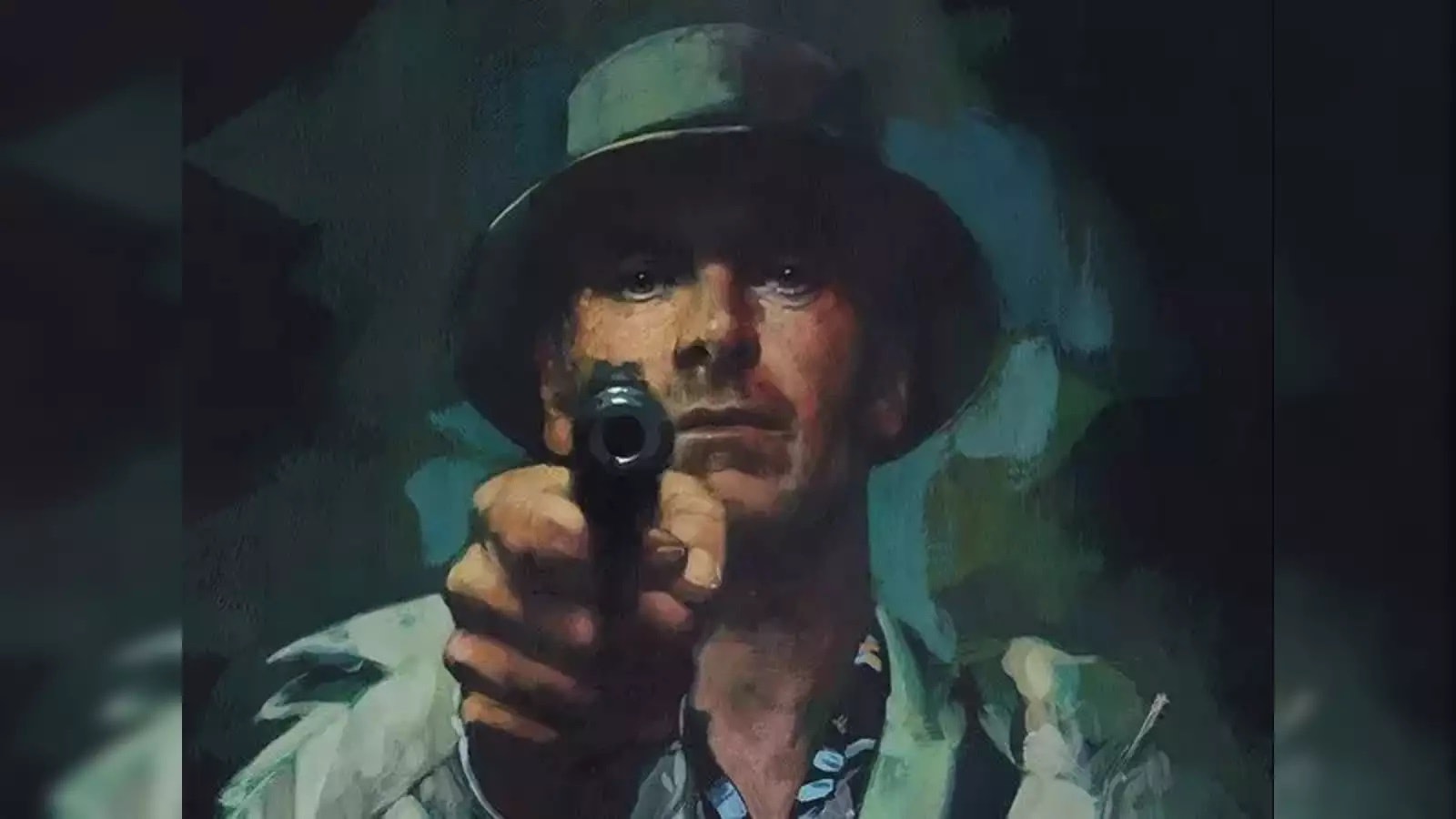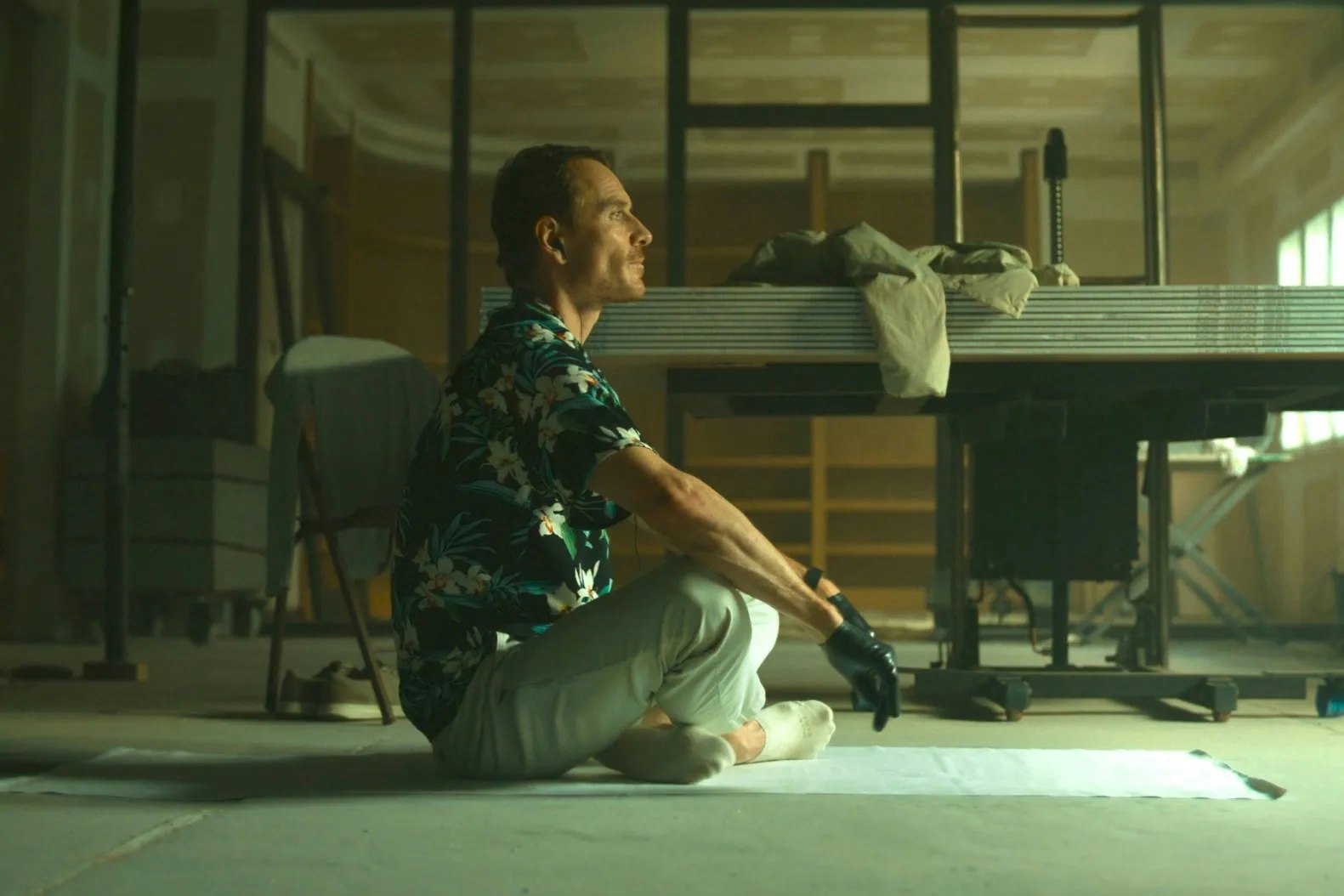
The Killer, the latest thriller in David Fincher’s oeuvre, stars Michael Fassbender as “The Killer,” an assassin whose life derails when a moment of distraction causes a rare miss. When his failure endangers the woman he loves, he’s forced to wage a one-man war on everyone responsible. It’s a thrilling and darkly comic tale, and rightly hailed as a true return to form for the modern thriller auteur, despite dropping too quietly on Netflix on November 10th (outside a limited theatrical run in NY and LA).
Fassbender’s cold-blooded protagonist is far from the first murderer in Fincher’s canon. We’ve seen detective-taunting serial killers (Se7en, Zodiac, The Girl With The Dragon Tattoo), a murderously vengeful spouse (Gone Girl), criminals pushed to the brink (Panic Room), and a truly dangerous toxic masculinity cult (Fight Club). Yet another regular Fincher trajectory centers around dangers of decidedly more bourgeois varieties, from fictional corporations that ruin lives with elaborate games (The Game), to real corporations that ruin lives thanks to power hungry founders (The Social Network).
The Killer ably pulls these disparate threads together by focusing on a dispassionate killer working within the context of an assassination business, here a central agency that fulfills contracts using a network of hitmen for hire. Here, murder isn’t personal, it’s merely business, right down to the “insurance” call that sends further assassins to his hideout.
Fassbender’s Killer takes no prisoners and asks no questions, a freelancing deliverer of death-to-order. It isn’t the self-righteous fanaticism of Se7en’s John Doe or the Zodiac Killer, it’s simply business. It’s precisely this element that brings Fincher’s critical bent into sharp focus: market logic ensures that terrible things happen dispassionately, for money. “The Killer” shares John Doe’s pathology in the sense that he can kill without regret, but he receives no joy from the endeavor. He doesn’t gloat, taunts detectives, or leave clues. He covers his tracks and clocks out.
In a way, it’s a clever send-up of modern freelancing, the 24/7 grind of hustle culture. The Killer may have Fincher’s highest body count (if we’re to believe the murder-montage of The Killer’s opening credits against Tyler Durden’s Fight Club assurance that the blown-up buildings were empty), but, while Fincher’s other killers fuel themselves by passion or vengeance, “The Killer” propels his kills by aphorism. The use of self-affirmations has been popularized since at least the 1980s, but it’s a keystone to modern freelancing culture and the contemporary “self help” wave. It’s The Killer’s consistent narrative thread, and for a character that otherwise speaks little it’s a major way we come to understand him.

Every time the same process: The Killer accepts a job, with minimal info besides what’s needed for planning. We first meet him in an empty WeWork office across the street from a target. “Forbid empathy,” he tells himself, target in his crosshairs. “Stick to your plan,” he continually reiterates, “anticipate, don't improvise.” Every kill, every time, the same repeated affirmations. “Never yield an advantage.” Another target, the same repetition. He scouts a target, sometimes for days, waiting for the right moment. “Fight only the battle you're paid to fight.” It’s an exemplary example of a modern freelancer in perpetual grind, self-supporting in isolation through a perpetual set of routine affirmations.
With a dose of dry humor, we get to see the killer as he sees himself. He’s prepared, but no “genius.” He does yoga and checks his pulse before a shot, and eschews the pleasures of French cuisine while in France, on the job. Instead, McDonald’s, a quick, cheap, unremarkable bite of protein. With his unblinking ability for violence combined with being thoroughly uninteresting and coasting on a torrent of borrowed names, this Killer is like a Hegelian synthesis of Fight Club’s Narrator and Tyler Durden, with a slice of Atlas Shrugged on the side. After all, as he puts it, “each and every step of the way, ask yourself, ‘What’s in it for me?’”
All these factors make The Killer one of Fincher’s most paradoxical protagonists. We know him both so well and yet he remains opaque. We have remarkably so little on him to grasp, and yet his exhibition of modern 24/7 hustle ethos is evidently relatable (contract killers: they’re just like us!). Most centrally, it's a darkly comic sendup of freelancing culture wrapped in a tense thriller, and one of Fincher’s most interesting case studies yet.







